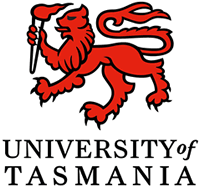About the Project
The microbial foodweb comprises heterotrophic bacteria, viruses and microzooplankton and plays a pivotal role in driving the transfer of energy through ocean ecosystems and the biogeochemical cycling of key elements such as carbon, nitrogen, phosphorus and iron (Falkowski et al., 2008; Boyd et al., 2012). There is growing interest – particularly in polar regions (Kirchman et al., 2009; Constable et al., 2014) – in how changing oceanic conditions (warming, acidification, nutrient supply, irradiance) will alter the individual components of the microbial foodweb, and what the cumulative effect of these changes will be on polar open water foodwebs and the associated biogeochemical cycles.
The project will use a combination of lab-based experimental chambers and field-based (shipboard) incubators to investigate the interplay between different tropic levels within the microbial foodweb under both ambient (i.e. present day) and altered (climate change) conditions. The following will be measured: uptake of dissolved organic carbon (DOC), bacterial community structure, bacterial secondary production and enzymatic activity. The ‘side-on control’ by viruses of bacterial dynamics and grazing on heterotrophic bacteria by a range of different microzooplankton grazers will also be assessed. This will enable the flows of energy to be estimated through the present day microbial foodweb, along with an assessment of how (and in what part of the microbial foodweb) they will be under a range of climate change scenarios.
A parallel suite of rate measurements will be conducted to determine patterns of nutrient recycling by the microbes. The findings of this research will link with microbial foodweb modelling experiments to place the altered role of the microbial foodweb into a wider ecological context.
This project is supported by the Australian Research Council (ARC) Special Research Initiative for Antarctic Gateway Partnership. For information about the Antarctic Gateway Partnership visit the Institute for Marine and Antarctic Studies (IMAS) web page.
Funding Notes
The ARC Antarctic Gateway Partnership is seeking applications from suitably qualified graduates for living allowance Scholarships to undertake PhD projects.
The UTAS Graduate Research Office provides detailed information about scholarships including eligibility, award conditions and application processes.
To be considered for an ARC Antarctic Gateway Partnership living allowance Scholarship it is necessary to specify this on the Admissions and Scholarship Application Part 9.1.
Tuition fees apply to all international candidates. Limited numbers of UTAS tuition fee scholarships are also available on a competitive basis to candidates undertaking projects closely aligned with the ARC Antarctic Gateway Partnership's research objectives.
References
Boyd, P. W., Strzepek, R., Chiswell, S., Chang, H., DeBruyn, J. M., Ellwood, M., . . . Hutchins, D. A. (2012). Microbial control of diatom bloom dynamics in the open ocean. Geophysical Research Letters, 39. doi: 10.1029/2012gl053448.
Constable, A, Melbourne-Thomas, J., Corney, SP, Arrigo, KR, Barbraud, C, Barnes, DKA, Bindoff, NL, Boyd, PW, and Zeigler, P (2014), “Climate change and Southern Ocean ecosystems I: How changes in physical habitats directly affect marine biota”, Global Change Biology 20, 3004–3025.
Falkowski, P.G., T. Fenchel and E.F. Delong (2008) The Microbial Engines That Drive Earth's Biogeochemical Cycles. Science, Vol. 320 no. 5879 pp. 1034-1039. DOI: 10.1126/science.1153213.
Kirchman DL, Morán XA, Ducklow H. (2009) Microbial growth in the polar oceans - role of temperature and potential impact of climate change. Nat Rev Microbiol. 7: 451-9. doi: 10.1038/nrmicro2115.

 Continue with Facebook
Continue with Facebook

